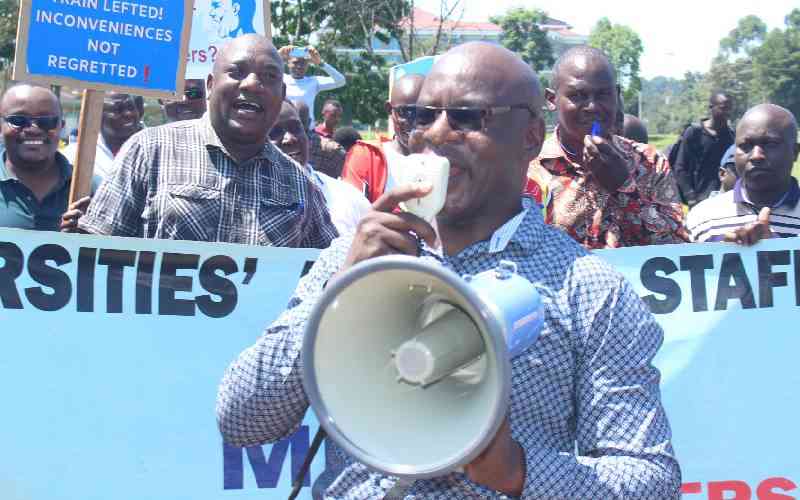×
The Standard e-Paper
Smart Minds Choose Us

Kenya Universities Staff Union and University Academic Staff Union members at Masinde Muliro University of Science and Technology protest in Kakamega town on September 18, 2024. [By Benjamin Sakwa, Standard]
Workers in public universities have downed tools, signalling the deepening mess in institutions of higher learning.